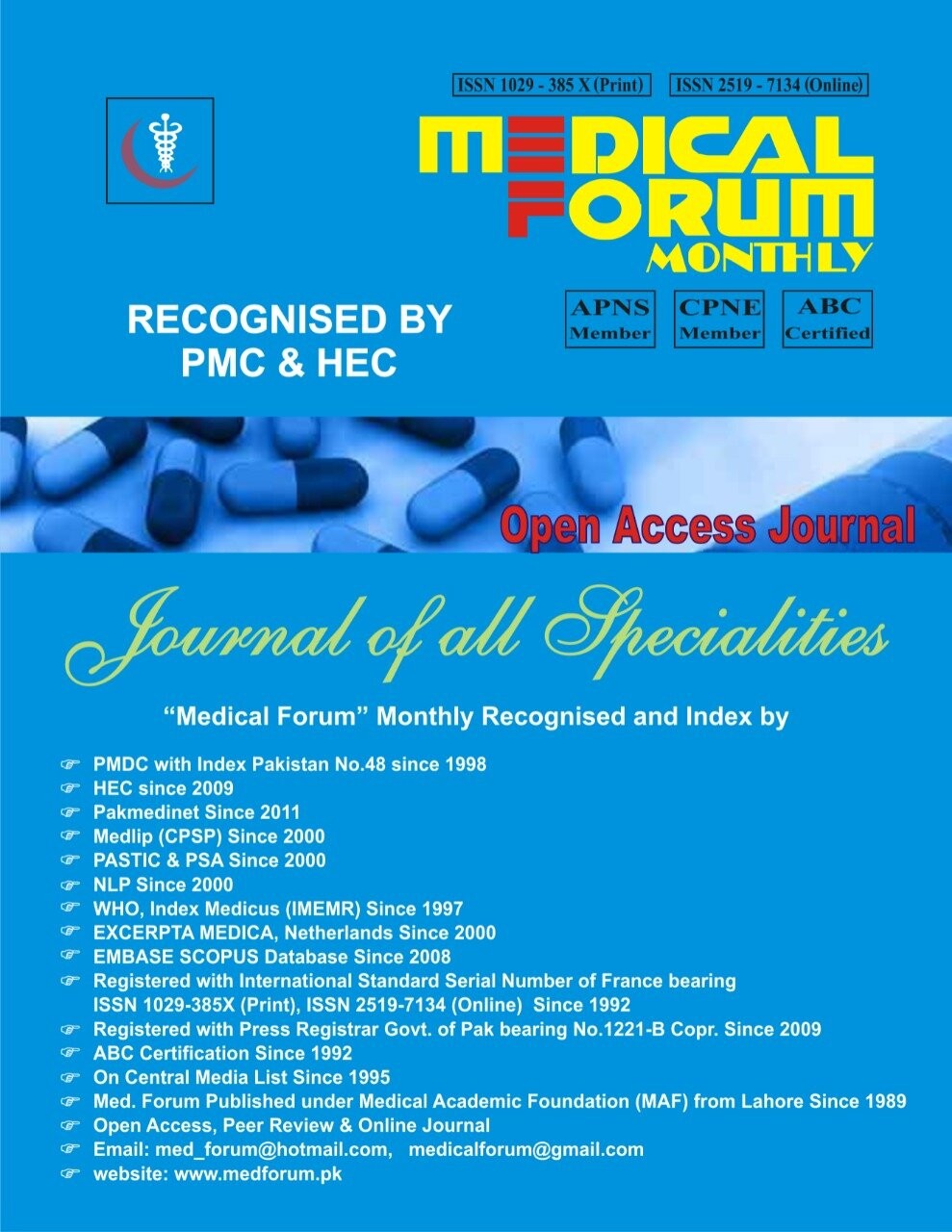
5.Association of Proton Pump Inhibitors with Hepatic Encephalopathy among Patients with Liver Cirrhosis
Syed Yasir Hussain Gilani1, Rizwan Ali Khan1, Saima Bibi2, Farrukh Addil2, Sidratul Muntaha3 and Asif Mehmmod4
ABSTRACT
Objective: To find an association between PPIs and increased risk of hepatic encephalopathy in cirrhosis.
Study Design: Case-Control study
Place and Duration of Study: This study was conducted at the conducted in the department of Medicine and gastroenterology, Ayub Teaching Hospital; Abbottabad from August 2019 to June 2020 for a period of 10 months.
Materials and Methods: All patients with liver cirrhosis and hepatic encephalopathy presenting to the department of medicine and gastroenterology were included through a non-probability consecutive sampling.
Results: A total of 166 patients with liver cirrhosis were enrolled in the study including 93 (56.0%) male and 73 (44.0%) female patients. The mean age of the patients was 59.00±9.789 years. A total of103(62.0%) patients were found PPIs users and 63(38.0%) were found PPI nonusers. Patients using PPIs were 4 times more likely to develop Hepatic Encephalopathy as compared to those patients of liver cirrhosis who were not using PPIs (OR= 4.276, CI= 2.172-8.420).
Conclusion: Patients with liver cirrhosis who are using proton pump inhibitors are more likely to develop hepatic encephalopathy when compared to the control group.
Key Words: Proton Pump Inhibitors, Hepatic Encephalopathy, Liver Cirrhosis
Citation of article: Gilani SYH, Khan RA, Bibi S, Addil F, Muntaha S, Mehmmod A. Association of Proton Pump Inhibitors with Hepatic Encephalopathy among Patients with Liver Cirrhosis. Med Forum 2021;32(11):
